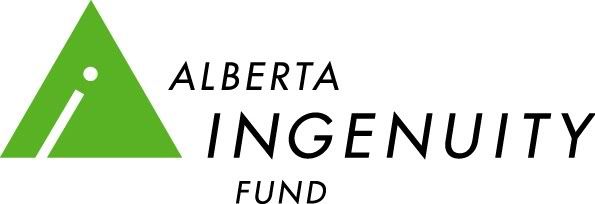Team:Calgary/Team12
From 2010.igem.org
(Difference between revisions)
Emily Hicks (Talk | contribs) |
Emily Hicks (Talk | contribs) |
||
| (One intermediate revision not shown) | |||
| Line 20: | Line 20: | ||
table { | table { | ||
left:0px; | left:0px; | ||
| - | background-color: # | + | background-color: #ffffff; |
cell-padding: 5px; | cell-padding: 5px; | ||
border-collapse:collapse; | border-collapse:collapse; | ||
| Line 69: | Line 69: | ||
<div id="logo"> | <div id="logo"> | ||
</html> | </html> | ||
| - | [[Image: | + | [[Image:Calgary_Logo12.png|180px]] |
<html> | <html> | ||
</div> | </div> | ||
Latest revision as of 23:51, 17 June 2010
University of Calgary iGEM

|
iGEM - INTERNATIONAL GENETICALLY ENGINEERED MACHINES
The International Genetically Engineered Machines (iGEM) competition is annually held at the Massachusetts Institute of Technology (MIT) in the field of Synthetic Biology. Since 2004, this competition encourages undergraduate teams from all over the world to develop a project that intertwines the principles of Biology and Engineering. The competition not only determines the worth of projects solely based on biological merit, but also requires teams to examine their project as a whole. This includes aspects such as modelling of genetic circuits, marketing the project and educating the public about iGEM and Synthetic Biology. For more information about iGEM, please visit their official website.
The U of C iGEM team is made up of 15 undergraduate students from Health Sciences, Engineering, Computer Science and Kinesiology as well as 4 facilitators. For more information regarding the U of C iGEM Enterprise, please visit our website. |
|
|
NAVIGATION
Need help navigating our site? Click HERE for a navigational guide and sitemap. Or, follow our tour:
A TOUR OF THE UNIVERSITY OF CALGARY iGEM TEAM

Welcome to the University of Calgary iGEM wiki! This is the first step of our tour! With this tour, you will not only learn about our overall project, but also delve into all aspects of our project and find out what we've been up to lately. On this page, you can read about iGEM, our project, and check out a few pictures that display our adventures in synthetic biology. Also, please feel free to leave any comments or suggestions at the bottom of the page. Once you've finished exploring our front page, please click HERE to continue the tour for an intro of our team!
|
|
|
U OF C iGEM: REPROGRAMMING A LANGUAGE AND A COMMUNITY
The progression of strong scientific research depends on whether industry and the public know about it and understand how the research can be applied. With this in mind, the U of C iGEM team’s work stretches far beyond the wetlab. We pursued initiatives all the way from mathematical modelling to ethics and from education to fundraising. Below there is a list of all the aspects of our project with respective icons and a brief description about each endeavour. These icons are present throughout our wiki so you can keep track of which aspect of our project you are learning about.
|
|
|
LATEST NEWS
U of C iGEM team wins provincial competition, September 20th
With smiling faces and heightened team pride, the U of C brought home the aGEM trophy after placing first in the Alberta Genetically Engineered Machines (aGEM) competition, which was held in Banff from September 18th -19th. aGEM is the Alberta Genetically Engineered Machines Competition. aGEM facilitates a sense of regional spirit and gives students a chance to compete and critique each other’s work as the three Albertan teams (U of C, U of A, and U of L) prepare for the iGEM Jamboree in the fall.
For more details, click HERE. |
|
|
STATS, COMMENTS & SOCIAL MEDIA
|
</html>
 "
"































